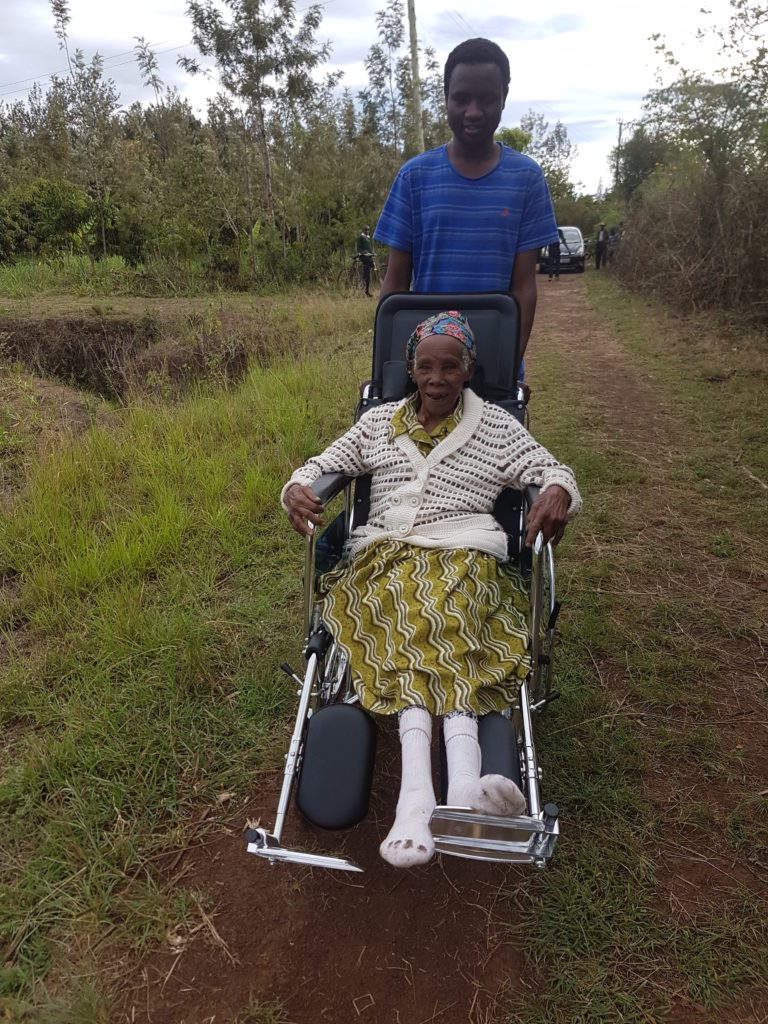Strengthening families, not institutions
 Fred Baridi is Stahili’s Field Operations Manager in Kenya. In this piece, Fred explains why strengthening families is important in keeping children free of residential care institutions such as orphanages.
Fred Baridi is Stahili’s Field Operations Manager in Kenya. In this piece, Fred explains why strengthening families is important in keeping children free of residential care institutions such as orphanages.
An increasing number of children live in residential institutions in Kenya, also known as orphanages or children’s homes. Despite the fact that residential care institutions must be registered by law, unregistered institutions have mushroomed in recent years. Examples of organisations that operate freely with little or no government oversight are unfortunately widespread in Kenya and are in violation of the law.
Throughout my time with Stahili, poverty has been the driving reason for children being placed in institutions instead of remaining in families. Desperation and a lack of understanding of the harm associated with institutions have led many families in the communities in which we work to send their kids to institutions. I have seen it first hand – the lure of institutions instils a belief that “orphans” and vulnerable children will be guaranteed education, food, and other basic needs like clothing.
Institutions can never be the right place for children. Children need families, not orphanages. Children need love, attention and stable attachment figures from whom they can develop a secure base on which all other relationships are built. Through Stahili’s community group, we are working with the community to warn children and families about the harms of orphanages.
Strengthening families
My role with Stahili entails tracing families, reunifying children with them, and working with children who have left institutions (known as care leavers) as well as their families. Family support and strengthening are a priority for needy families, especially in situations where children are reintegrated back into families after living in institutions. So how can family care be strengthened to be effective and efficient?
Education is among the expenses many families encounter. For the families I have interviewed, the cost of sending children to school is often a significant factor in the decision to place a child in institutional care. To alleviate this burden on families, Stahili provides education support including uniforms, school supplies and meals.
We also provide healthcare and skills training to support children and families. Family planning, HIV/AIDS prevention and treatment are fundamentally important interventions to support family care. We support families caring for children living with HIV by supporting transportation costs to medical appointments and enabling access to antiretroviral medication, which is free of charge.
Family-based support is cheaper and more efficient than supporting a child in a residential care institution. At Stahili, we have been able to protect children and reach far more beneficiaries with far less funds than most orphanages operate on. The power of family support can be transformative.
When the drought hit our families impacting their food security, we supported them with food. But aid should never be the goal. Instead of seeing relief work as aid given by the developed world to the poorer developing world, we need to shift our perspective towards a ‘rights-based approach’, guided by the goal of helping people to achieve their rights through sustainable and participatory development. This is the crux of our work at Stahili.
Family strengthening must therefore address the underlying conditions of poverty and social exclusion. Livelihood and economic empowerment activities are key to keeping families together and thriving. We implement skills-based training to help lift families out of poverty by making them independent. I have seen the power that independence brings to a family.
Sometimes small interventions can have a big impact. Thanks to our supporters and donors, Stahili recently provided a wheelchair for an elderly grandmother who has lost her mobility but who plays an active role in caring for children. The improved quality of life will allow her to age with dignity but will also have a positive impact on the whole family.

Family-based care is cheaper, but not easy
Many institutions, including those that are run by well-meaning individuals, cite abuse and neglect among the reasons for keeping children in institutions. It is indeed important to acknowledge that neglect and abuse do occur in families.
However, we view the family as the primary social unit and make appropriate interventions to ensure that families stay together as long as it is in the best interests of the child. This often means working with families to address issues of neglect or abuse. Parents suffering from alcohol or substance abuse could benefit from rehabilitation support, for example, which can in turn empower the family unit. An orphanage can never provide the appropriate individual attention or environment that a child needs to thrive, which is why Stahili is committed to finding family-based alternatives wherever possible.
Family-based support is a laborious endeavour. Most things that are good are often not easy. It requires diversified and tailored interventions to meet the specific needs of each and every child as well as his or her family. It also requires that we stand by families through thick and thin and when they need us